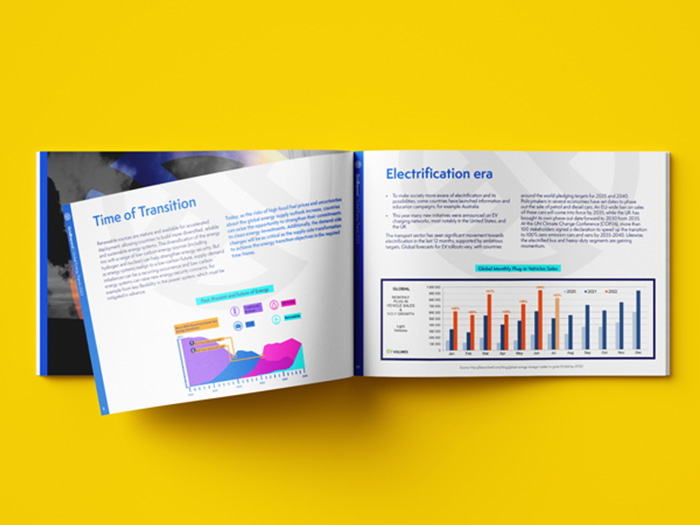Insights
better business decisions
Posted 3 years ago | 3 minute read

Ukraine war to accelerate shift to clean energy, BP says
The war between Russia and Ukraine is expected to weigh on long-term energy demand and accelerate the world’s shift towards low-carbon power as countries seek to increase domestic energy supplies, BP has said.
In its latest Energy Outlook, published on 30 January, BP noted that, from an energy perspective, the disruptions to Russian energy supplies and the resulting global energy shortages seem likely to have a material and lasting impact on the energy system. But this is fuelling the desire of countries to bolster their energy security by reducing their dependency on imported energy.
The heightened focus on energy security increases demand for domestically produced renewables and other non-fossil fuels, helping to accelerate the energy transition. The structure of energy demand changes, with the importance of fossil fuels declining, replaced by a growing share of renewable energy and by increasing electrification. As a result, government support for the energy transition has increased across the world, including the passing of the Inflation Reduction Act in the US. But BP said that the scale of the decarbonisation challenge suggests greater support is required globally, including policies to facilitate quicker permitting and approval of low-carbon energy and infrastructure.
The report also predicted:
- Oil demand to decline over the period to 2030, driven by falling use in road transport as the efficiency of the vehicle fleet improves and the electrification of road vehicles accelerates. Even so, oil continues to play a major role in the global energy system for the next 15-20 years.
- The prospects for natural gas depend on the speed of the energy transition, with increasing demand in emerging economies as they grow and industrialise offset by the transition to lower carbon energy sources in many economies.
- The recent energy shortages and price spikes highlight the importance of the transition away from hydrocarbons. Natural declines in existing production sources mean there needs to be continuing upstream investment in oil and natural gas over the next 30 years.
- The global power system decarbonises, led by the increasing dominance of wind and solar power. Wind and solar account for all or most of the growth in power generation.
- The use of modern bioenergy and low-carbon hydrogen grows rapidly, helping to decarbonise hard-to-abate sectors and processes.
- Carbon capture, use and storage plays a central role in enabling rapid decarbonisation trajectories and abating emissions from the use of fossil fuels.

White Paper Global Energy trends 2023 – Crisis, contingencies, and climate change
In this white paper, we shine a light on the biggest challenges and opportunities facing the sector over the next 12 months as participants of all types plan and execute their decarbonisation strategies during the current energy crisis. We also examine key trends that commentators – including GridBeyond’s experts – agree will be at the forefront of discussions and developments in the energy sector in 2023 and beyond.
Learn more





